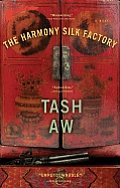awdacity
 We had a discussion in my writing class recently about whether it’s okay to switch genres halfway through a book. The consensus seemed to be no. As Terry explained it, “In the first chapters, you make certain promises to your reader, and it’s problematic if you don’t fulfill those promises.” Also, there’s that whole marketing problem—is it a family saga or magic realism or sci fi?
We had a discussion in my writing class recently about whether it’s okay to switch genres halfway through a book. The consensus seemed to be no. As Terry explained it, “In the first chapters, you make certain promises to your reader, and it’s problematic if you don’t fulfill those promises.” Also, there’s that whole marketing problem—is it a family saga or magic realism or sci fi?But I hate marketing. And sometimes, in life, people break promises.
Maybe readers read to escape life’s broken promises, but I’m not writing escapism, damnit. To bolster my argument in favor of zipping coyly from genre to genre, I present The Harmony Silk Factory by Tash Aw.
In the novel, three narrators attempt to decipher the true nature of a Chinese Malaysian businessman named Johnny Lim. He was a Communist, a celebrity, a brokenhearted husband, a traitor, a freedom fighter and/or a murderer, depending who you listen to. The first narrator is his son, Jasper, who presents a historically driven biography that can’t help but bleed into personal anecdotes ridden with longing. It’s a father-son portrait that indirectly takes on Eurocentric ways of recording history.
Then, boom, it’s Part II, and Jasper’s mother is narrating, and suddenly it’s all Lost/Gilligan’s Island. She and Johnny are on a belated honeymoon with a handful of friends. Their ship sets ground on the shore of an uncharted desert isle, and everyone on the island has a dark secret to flee from, an enemy to blackmail or an unrequited love to brood over.
Part III is narrated by Peter, Johnny’s seemingly gay Englishman friend. He illuminates a few secrets, complicates others, and spends a lot of time planning the perfect garden for his retirement home. I don’t know what genre this would be. Post-colonial travelogue? Geriatric gardening manual?
I can’t say I fell in love with this book, though at times it was a page-turner and (at more distantly spaced times) it was heart-wrenching. But I admire Aw’s audacity and flexibility. Genres, for him, are like the Seven Maidens, the mysterious disappearing islands his characters sail to in Part II. You can hop from one to another, and things are assured of looking completely different once the sun goes down.



Comments
But yeah, Tash is worth a read.
ps. i was directed to your blog through myspace.